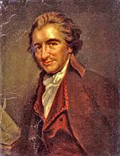
 |
Free Fall in Crimson
|
Please go to the new Coffee Coaster site implemented more gracefully in Wordpress. This page @ http://brianrwright.com/CoffeeCoasterBlog/?p=6383 |

1981, Ballantine Books , 284 pages
"Meyer taught me this. What you should be doing
from now on, Travis, is to make sure you get into as many computers as possible. Lots of tiny bank accounts, lots of credit cards, lots of memberships. Have your attorney set up some partnerships and
little corporations and get you some additional tax numbers. Move bits of money around often. Buy and sell odd lots of this and that. Feed all the information you can into their computers."
"And spend my life keeping track of what the hell I'm doing?"
"Who said anything about keeping track? If you get so complicated you confuse yourself, imagine how confused the poor computers [the government] are going to be."
"Is she putting me on, Meyer?"
"She's giving you good advice. If you try to hide you're easy to find. You are leaving only one trail in the jungle and the hounds can follow that one. Leave forty trails, crossing and recrossing. The computers are strangling on data. The courts are strangling on case load. Billions of pieces of paper are floating around each month, clogging the inputs, confusing the outputs. A nice little old lady in Duluth had twelve post office boxes under twelve different names, and had twelve social security numbers, and drew checks on all twelve for eight years before they caught up with her. And they wouldn't have, if she hadn't signed the wrong name on the wrong check five years ago. The government seeks restitution. She says she lost it all at bingo....
”—pages 140, 141
Dropping out of the system John D. MacDonald style. Well, time for my next installment on fun reading, another interlude before tackling more 9/11 exposes or Alan Greenspan's memoirs. Thing is, as general-purpose entertaining and rapid-page-turning as the Travis McGee mystery novels are, MacDonald is a pure-bred libertarian at heart; he throws in regular gems of practical insight and advice for those of us who grow tired of the Big Grind:
"... the whole dreary deadening structured mess we have built into such a glittering, top-heavy structure that there is nothing left to see but the glitter, and the brute routines of maintaining it."—Nightmare in Pink, 1964
So multiplying one's identities is a suggestion to consider for some of my Free State friends who want to go off the grid, live life without being trackable. I'd like to disconnect, too, but I'm afraid I'm stuck for a while by the previous investment trap. The above advice delivered by Travis's friend Meyer and Meyer's self-made girlfriend, Aggie, is certainly an option for normal freedom-loving people who feel a need to throw sand into the colossal machinery that doesn't seem to work to the benefit of regular Joes and Janes.
But other than the iconoclasm and incipient environmentalism one gathers from the passage, one sees a deep understanding of the coming information age, how burdened it will be by coercive methods of control and how impotent the state is without the unquestioned obedience of the citizenry. Indeed, part of the appeal of Travis McGee—and this novel skips several from the first two in the series (The Deep Blue Good-By and Nightmare in Pink), which I have previously had the pleasure of reviewing—is his desire to live on his own terms, not succumb to the regimentation of "Corporate Man" that Madison Avenue so widely promoted after the BIG war (WW2).
Beside McGee, Ian Fleming's James Bond is shown to be positively plastic... though highly superior plastic having all the right moves with the babes, the cars, and the guns. My point is not to put down Mr. Bond—he remains one of the finest genuine literary and cinematic heroes (at least the Sean Connery roles)—rather to suggest John MacDonald's hero has a lot more practical reality going for him... and for me. When I see Travis solving a problem, it suggests an approach that isn't too far away from something I could and would be inclined to try myself.
In this one, Travis has matured, been through some true loves found and lost for one reason or another, but still lives in his houseboat The Busted Flush in Lauderdale, Florida, and tries to work odd cases as an unofficial private investigator taking half of whatever is recovered. Between the early 1960s of his first appearance and this one in the early 1980s, Travis has become friends with a man named simply Meyer, who is as unconventional as Travis but travels in more elevated financial circles and knows the money game. No ages are given but the author gives the impression that Travis is the younger man, possibly in his 30s yet, while Meyer is the old pro in his late 40s or mid-50s. At the beginning of the story, Meyer is trying to convince Travis to take a case for a would-be heir who wants to find out how and why his father was killed.
The father was an unlikable man, but rich by the standards of those days, leaving a few million dollars that instead of filtering substantially to the son, wound up going to a foundation. Initially, Meyer and Travis both ride down to the jurisdiction where the crime took place and try to see key records from the dormant police files. How MacDonald gets the cooperation of the River County personnel on the case reminds me of some of the best cons of Jim Rockford (James Garner) in The Rockford Files. Meyer poses as a "Certified Guarantor," handing the detective an embossed business card.
"People treat a Certified Guarantor with respect. If they asked what it meant, he told them
in such a way that respect was increased.
"'Mr. McGee is assisting me, sir,'
Meyer said. 'The Esterland estate is a phased estate, in that certain incumbrances and stipulations have to fall into place in a time frame that takes heed of certain aspects of taxation on properties coexistent with the residual portions...'"
The cops eyes glaze over and he basically lets them see the records.
In the course of his business in Florida, Travis is always offering disdainful observations about unreal living in that haven for "smoggy vistas and chrome glitterings down the long alleyway between fast food outlets, the sprawl of motels, car dealerships, shell factories, strip malls, gas stations, and gigantic signboards. It is all that bustling steaming growth that turns the state tackier each year. Newcomers don't mind at all, because they think it has always been like this. But in two years they all want to slam the door, pull up the ladder, and close the state off."
Well, I'm not going to give much than a glimmering of the plot: basically Travis sets out after some biker trash he feels is involved, and the trail takes him to Hollywood and Indiana (for a movie involving hot air balloons). A couple of the motorcycle gang chieftains are hiding something and they are definitely not nice people, clearly the kind that gravitate to the seedier side of the trade when drugs are made illegal.
Naturally, Travis, like Bond, is always getting lucky... but somehow, unlike Bond, it seems like the sort of thing that would actually happen quite naturally in his situation. Here's a classic paragraph that shows the MacDonald skill at language and humor in a hot-babe context:
"She looked at me. She was all a-hum with ready. She was up to the splash rails with electric ready. Everything was working, all the blood and juices from eyeballs to polished toenails."
I leave you with that. There is none higher. Reading MacDonald is better than drugs, and the only hangover is you simply want to read more.
###
###

 |
 |
|||
| New Pilgrim Chronicles Forum |